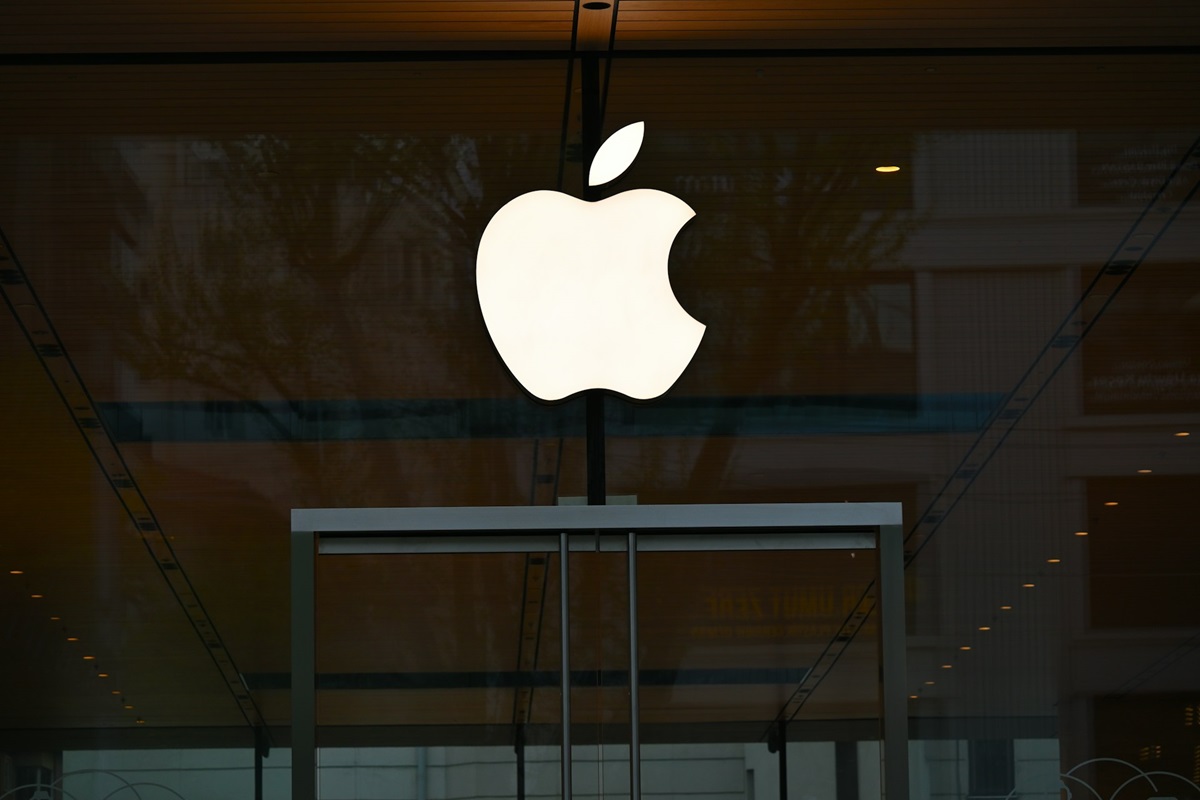Apple may begin to implement the practice of charging its users up to $20 for using advanced artificial intelligence features.

The mentioned point of view is common among analysts. The cost of access to advanced artificial intelligence functions may be different, but the very kind of such a financial principle is realistic. This thesis is based on the patterns of the current logic of the actions of the technology giant based in Cupertino, California. Apple is currently striving to implement measures and solutions aimed at stimulating the growth of its profitable business in the service area.
By the end of the current year, the technology giant intends to implement its artificial intelligence system called Apple Intelligence on some devices. In this case, the devices included in the company’s product line are meant.
The technology giant announced its artificial intelligence system in June. At that time, the company reported that the mentioned system would enhance the Siri voice assistant. Also in June, the technology giant announced features such as the ability to automatically generate emails and images.
There is a widespread opinion among analysts that the introduction of new company solutions as a process will not be characterized by a rapid pace of implementation. They say that the relevant assumption is related to the fact that access to the announced functions will not be promptly provided to Apple users in regions such as Europe and China.
It is possible that the technology giant will not charge for all solutions based on artificial intelligence. It is realistic and viable to assume that access within the framework of the company’s commercial interaction with consumers will be provided to advanced features, and not to all Apple products of the corresponding line.
Neil Shah, a partner at Counterpoint Research, said during a conversation with media representatives that investments in the artificial intelligence industry are expensive. Also, in the context of stating the mentioned fact, he suggested that Apple would pass the corresponding costs to its users. Neil Shah says that for the technology giant, it is a more profitable commercial practice to distribute software and services using the Apple One subscription model. The cost of this subscription is $19.95 per month. As part of the corresponding commercial model, users are given access to various services of the technology giant, including Apple Music.
It is worth noting that many companies are currently investing heavily in artificial intelligence. The corresponding actions are related to the desire to benefit from the so-called AI boom. Artificial intelligence is the most promising technology of the current historical moment, which has the potential to make a kind of a significant evolutionary leap in the context of the existence of human civilization. The realization of all the possibilities of AI, many of which have not yet become what can be called a technological reality, will have wide-ranging consequences, including in the political environment, the economic space, the social system, and the cultural plane. Moreover, artificial intelligence may become an alternative form of mind that exists in a virtual dimension of a global being. Those companies that will be able to conquer the wave of AI will receive significant benefits, which with a high degree of probability can become the largest in their history. Against this background, investing in AI is a logical and natural process.
Apple reported $2.15 billion in payments for property, plant, and equipment in the quarter ended June. This indicator increased by 3% year-on-year. Part of the mentioned capital investments of the technology giant is intended to finance activities related to the development and implementation of artificial intelligence.
Apple’s competitors such as Microsoft, Google, and Meta are spending huge sums on building and equipping with Nvidia’s chips data centers focused on machine intelligence.
In the quarter ended in June, Microsoft’s capital expenditures totaled $13.87 billion. This indicator increased by 55% year-on-year. The expenses of Alphabet, Google’s parent company, for the mentioned quarter were fixed at $13.19 billion. This indicator showed an increase of 91% year-on-year. Meta’s capital expenditures for the quarter ended in June were fixed at $8.3 billion. This indicator increased by 31% year-on-year.
Meta chief executive officer Mark Zuckerberg explained the significant increase in spending from a game theory perspective. In this context, he stated that the risk of being left on the sidelines of the so-called artificial intelligence boom is a very pessimistic prospect, the consequences of which may be more sensitive in a negative sense compared to the excessive costs of graphics processing unit servers. Mark Zuckerberg is also striving for sustained confidence that Apple will not become the leader of the next major technological shift, which may very likely turn out to be AI. During a conversation with media representatives, he said that, in his opinion, all companies that invest in the artificial intelligence industry make a rational decision. Mark Zuckerberg is convinced that ignoring the AI boom for firms will mean losing ground in the area of the most important technology for the next 10-15 years.
Unlike Amazon, Google, and Microsoft, Apple and Meta are not involved in the cloud business, in which digital infrastructure is rented out to other companies. Instead, the technology giant, led by Mark Zuckerberg, is investing in training its own open-source large language model. The company also makes financial injections in the use of artificial intelligence to power its massive recommendation engine.
Apple rented relatively cheap Google tensor processing units to train its AI models. The technology giant did not use Nvidia chips, which are the most popular product in their category globally and allowed the specified brand to reach a market capitalization of $3 trillion this summer. Apple has leased Google tensor processing units in relatively small quantities.
Last week, the iPhone developer presented the first version of Apple Intelligence. This suite of AI features will improve the quality of Siri’s functioning, automatically generate emails and images, and sort notifications. So far, access to these solutions is provided only to developers for testing.
Apple builds out its infrastructure in the context of elaborating and implementing artificial intelligence. It is worth noting that the technology giant already has experience in developing its own chips for smartphones and servers. Because of this experience, the company does not need to spend billions of dollars to buy third-party processors.
Apple uses a kind of hybrid approach regarding data centers. The technology giant pushes part of its capital costs to its partners and transforms these funds into its operating expenses. Tim Cook, the company’s chief executive officer, confirms the fact that Apple uses a hybrid approach in the context of capital investments. He says that the technology giant has certain partners that it does business with externally where the capital expenditures would appear in their respective businesses. The Apple CEO said this last week during a conversation with analysts.
One of the mentioned partners of the technology giant is OpenAI, which functional solution called ChatGPT will be integrated into iOS by the end of the current year. OpenAI rents graphics processing units developed by Nvidia from Microsoft, its primary investor.
Apple rents cloud capacity from Amazon, Google, and Microsoft. The technology giant has so far refused to disclose information about the details of the deal with OpenAI.
Neil Shah suggests that Apple may charge between $10 and $20 for access to artificial intelligence features. He also admits the possibility that the corresponding offer will become part of the Apple One and will relate to more AI functions of the premium category.
For the quarter ended in June, the technology giant’s services unit recorded revenue of $24.2 million. It is worth noting that many other hardware manufacturers have failed to monetize their software.
Ben Wood, chief of research at CCS Insight, said this week during a conversation with media representatives that Apple is one of the few companies that makes connected devices and has successfully monetized its value-added services. The expert noted that the technology giant has set a precedent for its users who pay for additional premium services. Ben Wood stated that given the mentioned practice, it is likely that the company will decide on paid access to the most advanced features within Apple Intelligence. The expert also noted that the mentioned AI system can provide the technology giant with the opportunity to launch a bundled subscription to various services at a single price. Moreover, according to Ben Wood, Apple will not want to dilute its revenue from subscriptions to individual products.
It is worth noting that it is a common practice among technology companies to provide paid access to their artificial intelligence-based offerings. For example, OpenAI, as part of a paid subscription, provides consumers interaction with more advanced ChatGPT features. Microsoft charges for its AI Copilot service.
Apple’s largest competitor Samsung has already begun to introduce its artificial intelligence services, dubbed Galaxy AI. Currently, this South Korean company is considering various models for generating revenue from its software. Last month, a Samsung representative reported the relevant information to journalists.
Neil Shah says that for Apple, artificial intelligence is a chance to strengthen its already loyal customer base. Apple Intelligence is expected to learn lessons from consumer behavior, resulting in increased personalization.
Neil Shah noted that the feature of artificial intelligence is that as the implementation of the appropriate technology scales, AI begins to know more and more about the user. In a practical sense, this means that at a certain point, the consumer begins to interact with a digital system that contains an understanding of his needs, specifics of behavior, and preferences in the context of activity in a virtual environment. The personalization of AI tools will likely contribute to the user’s deep involvement in the Apple digital ecosystem, which forms monetization opportunities.
It is worth noting that in a global sense, the monetization of artificial intelligence is actually a guaranteed scenario that is already being implemented and will scale in the future. At the same time, AI will not become an exclusively paid technology. For example, the Copilot artificial intelligence-based digital assistant, which is a chatbot, is absolutely free to use on Microsoft’s Windows operating system. AI is gradually becoming a mass technology, which means that part of its application space will not be commercial. Advanced technologies that make large-scale changes in the condition of the material development of human civilization are traditionally transformed into tools of extensive dissemination, which over time begin the history of their presence in the practice of everyday life. Artificial intelligence has actually already started this path.









